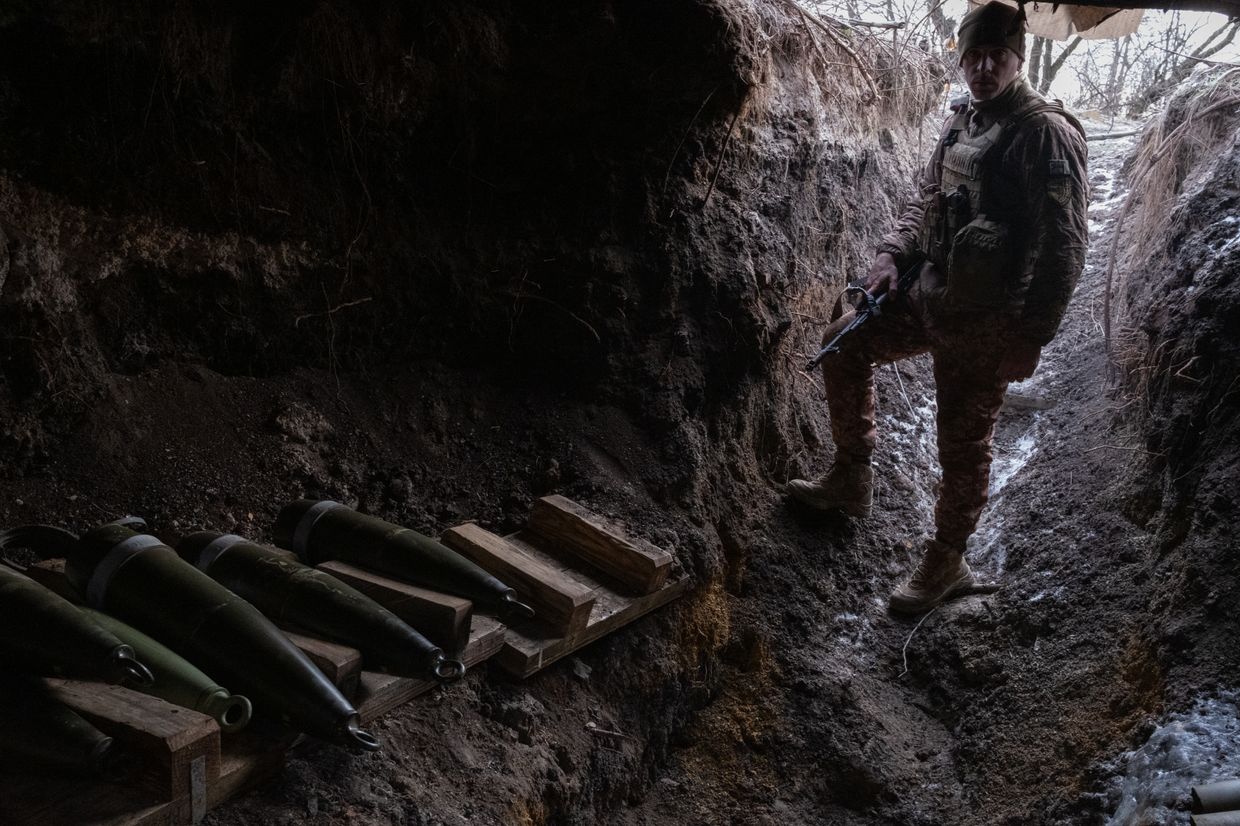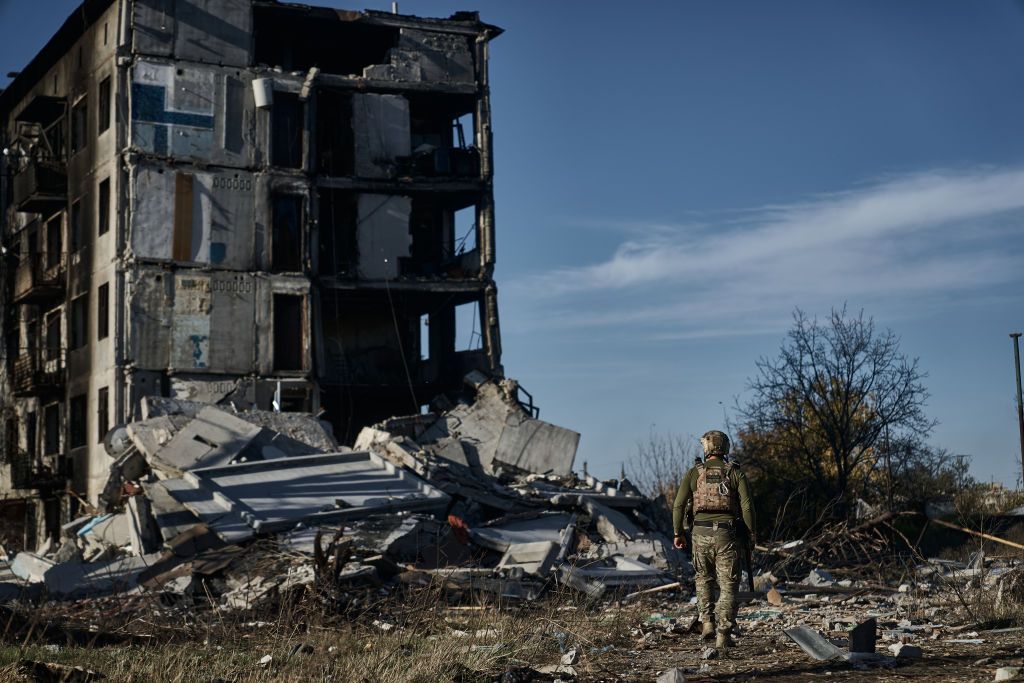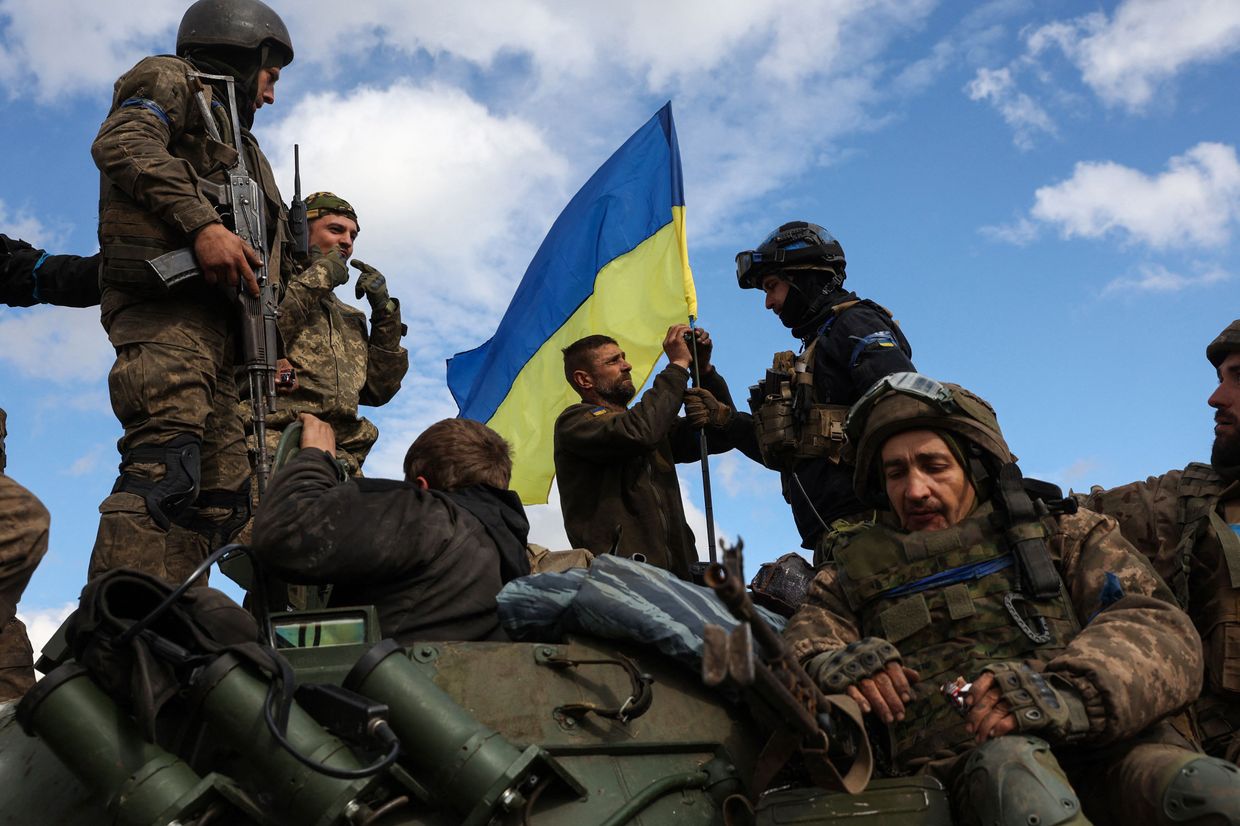Biden announces new package of sanctions against Russia

Editor's note: This is a developing story.
U.S. President Joe Biden announced on Feb. 23 an additional package of sanctions against Russia ahead of the second anniversary of the full-scale invasion of Ukraine.
"Today, I am announcing more than 500 new sanctions against Russia for its ongoing war of conquest on Ukraine and for the death of Alexei Navalny, who was a courageous anti-corruption activist and (Russian President Vladimir) Putin’s fiercest opposition leader," Biden said in a statement published by the White House.
The new sanctions will target individuals connected to Russia's financial sector, the defense-industrial base, and procurement networks, as well as those involved in Navalny's imprisonment and sanctions evaders.
The U.S. is also imposing export restrictions on around 100 entities "for providing backdoor support for Russia’s war machine" and "taking action to further reduce Russia’s energy revenues," said Biden.
He did not provide more details on the sanctions package.
The European Union and the U.K. have also announced additional sanctions against Russia and entities in third countries that help Moscow circumvent previous restrictions and sustain its war machine.
The U.S. is also expected to impose additional sanctions against Iran for its continued military cooperation with Moscow. The White House has not yet confirmed reports on Iran's provision of ballistic missiles to Russia but promised a "swift and severe" response if the delivery takes place.
Biden called on the U.S. Congress to approve urgent aid to Ukraine that was delayed for months due to domestic political turmoil.
"Two years into this war, the people of Ukraine continue to fight with tremendous courage. But they are running out of ammunition. Ukraine needs more supplies from the United States to hold the line against Russia’s relentless attacks, which are enabled by arms and ammunition from Iran and North Korea," reads his statement.
After months of bipartisan negotiations, the Senate approved a $95 billion foreign aid bill that allocates $60 billion for Ukraine. Republican House Speaker Mike Johnson has thus far refused to put the bill to a vote in the House, instead calling recess until the end of the month.
Holdups in the U.S. assistance continue to put a strain on Ukraine's defense capabilities, contributing to the loss of the key front-line city of Avdiivka.
A U.S. delegation led by Senate Majority Leader Chuck Schumer arrived in Ukraine's western city of Lviv earlier on Feb. 23 to meet with President Volodymyr Zelensky. During his visit, Schumer reportedly plans to assure Zelensky that Congress will eventually approve the aid, restoring this crucial lifeline.
"Congress knows that by supporting this bill, we can strengthen security in Europe, strengthen our security at home, and stand up to Putin. Opposing this bill only plays into his hands," added Biden's statement.
"The failure to support Ukraine at this critical moment will not be forgotten. Now is the time for us to stand strong with Ukraine and stand united with our Allies and partners. Now is the time to prove that the United States stands up for freedom and bows down to no one."














